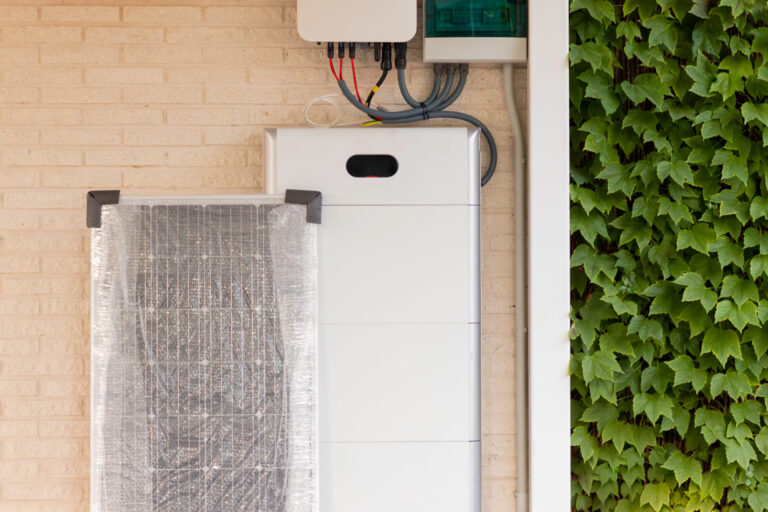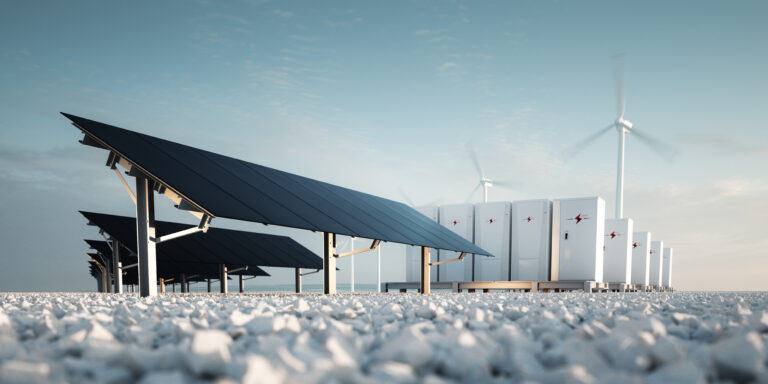Energy storage
Energy storage is becoming a key element of energy infrastructure. Thanks to them, it is possible to store, manage and effectively use electricity, which contributes to network stability and sustainable development.
Energy storage, also known as an energy battery, is a system that stores electrical energy for later use. This is a solution not only for renewable energy sources such as solar or wind energy, but also for the general energy infrastructure, enabling the reduction of demand fluctuations and increasing energy efficiency.

Energy storage functions:
- Storing excess energy: Storage allows energy to be stored during periods when production exceeds demand, such as during intense sunlight or strong winds.
- Supporting energy networks: Energy storage can act as an energy source in the event of sudden demand or grid failure, increasing the reliability and flexibility of the energy system.
- Energy consumption optimization: Advanced management systems allow you to optimize energy consumption, storing it in times of low consumption and releasing it in periods of high demand.
- Integration with Renewable Energy Sources: Energy storage is an ideal complement to systems based on renewable energy sources, helping to compensate for fluctuations in energy production related to weather conditions.
Are you looking for energy storage ?
Check current promotions and stocks
Key issues related to energy storage:
- Capacity and Performance: Selecting the appropriate storage capacity and energy conversion efficiency are crucial for the effective use of stored energy.
- Life Cycles: Energy storage has its own charging and discharging cycles. It is worth paying attention to the life cycles of batteries or other energy carriers to assess the durability of the system.
- Storage Technologies: The development of modern storage technologies, such as advanced batteries, contributes to increasing the efficiency and durability of energy storage.
- Security and Certificates: Energy storage should meet the highest safety standards, and their manufacturers should have appropriate certificates confirming compliance with the standards.

Privacy Policy Proforma Regulations All rights reserved 2026 ecoABM
agencja digital - hauerpower.com